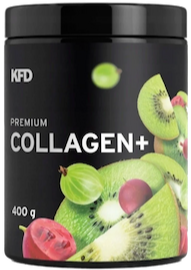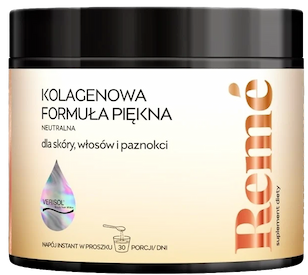Most powerful collagen supplement 2025 (effective and potent)
The strongest collagen will effectively support the condition of the skin, hair and nails.


Learn more about our editorial process
.

Learn more about our editorial process
.

Learn more about our editorial process
.

Learn more about our editorial process
.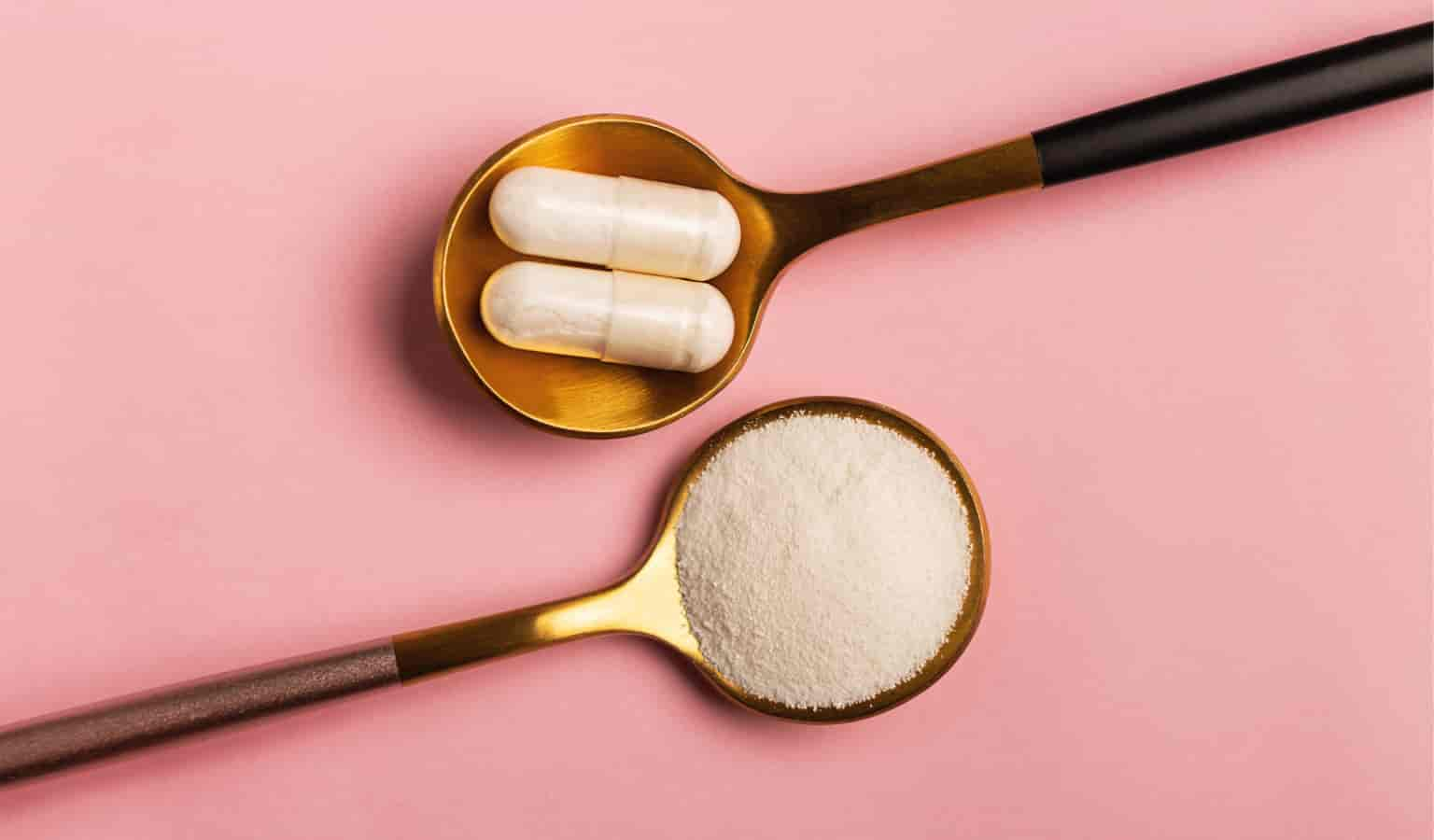
Why you can trust us
Articles on Natu.Care are written based on scientific research, data from government websites and other reliable sources. The texts are written in cooperation with doctors, nutritionists and other health and beauty experts. Articles are reviewed before publication and during significant updates.
.Learn more about our editorial process
.Information about advertisements
Content on Natu.Care may contain links to products from the sale of which we may receive a commission. When creating content, we adhere to high editorial standards and take care to be objective about the products discussed. The presence of affiliate links is not dictated by our partners, and we select the products we review ourselves completely independently.
.Learn more about our terms and Conditions
.Your body produces collagen on its own, but it goes harder over time. In your 20s, you're like a fully charged phone. Each year, however, the bars get smaller. By the time you turn 50, you may only have 50% of the collagen from your youthful years left.
Decreased levels of the protein of youth can mean injuries, joint pain, dull hair, flabby skin (and opening a can is suddenly a challenge for your nails, auce).
The solution may be supplementation with adequate collagen.
.
From this article you will learn:
.- What are the best products for skin, hair, nails and joints.
- What are the best products for skin, hair, nails and joints?
- Which type of youth protein to choose for specific needs. .
- What form of administration, will work best for you: powder, tablet like liquid. .
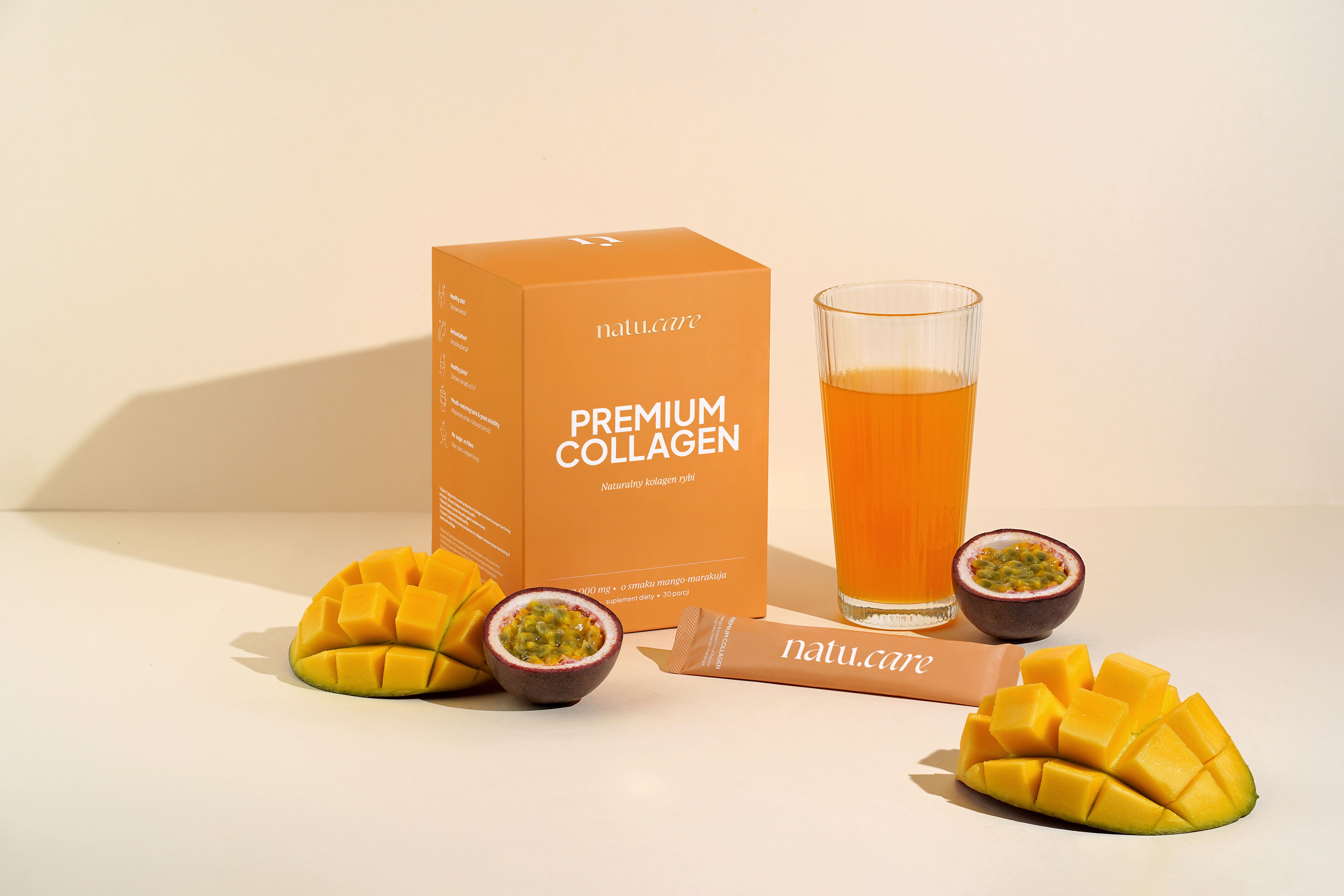
Sprawdź, za co pokochały go tysiące klientek Kolagen Premium 10000 mg, mango-marakuja
Natu.Care Kolagen Premium 10000 mg, mango-marakuja
Natu.Care Kolagen Premium dla zdrowia stawów, skóry, paznokci i włosów. Najlepsza przyswajalność. Optymalna dawka 5 000 lub 10 000 mg. Przebadany przez niezależne laboratorium.
Zobacz więcej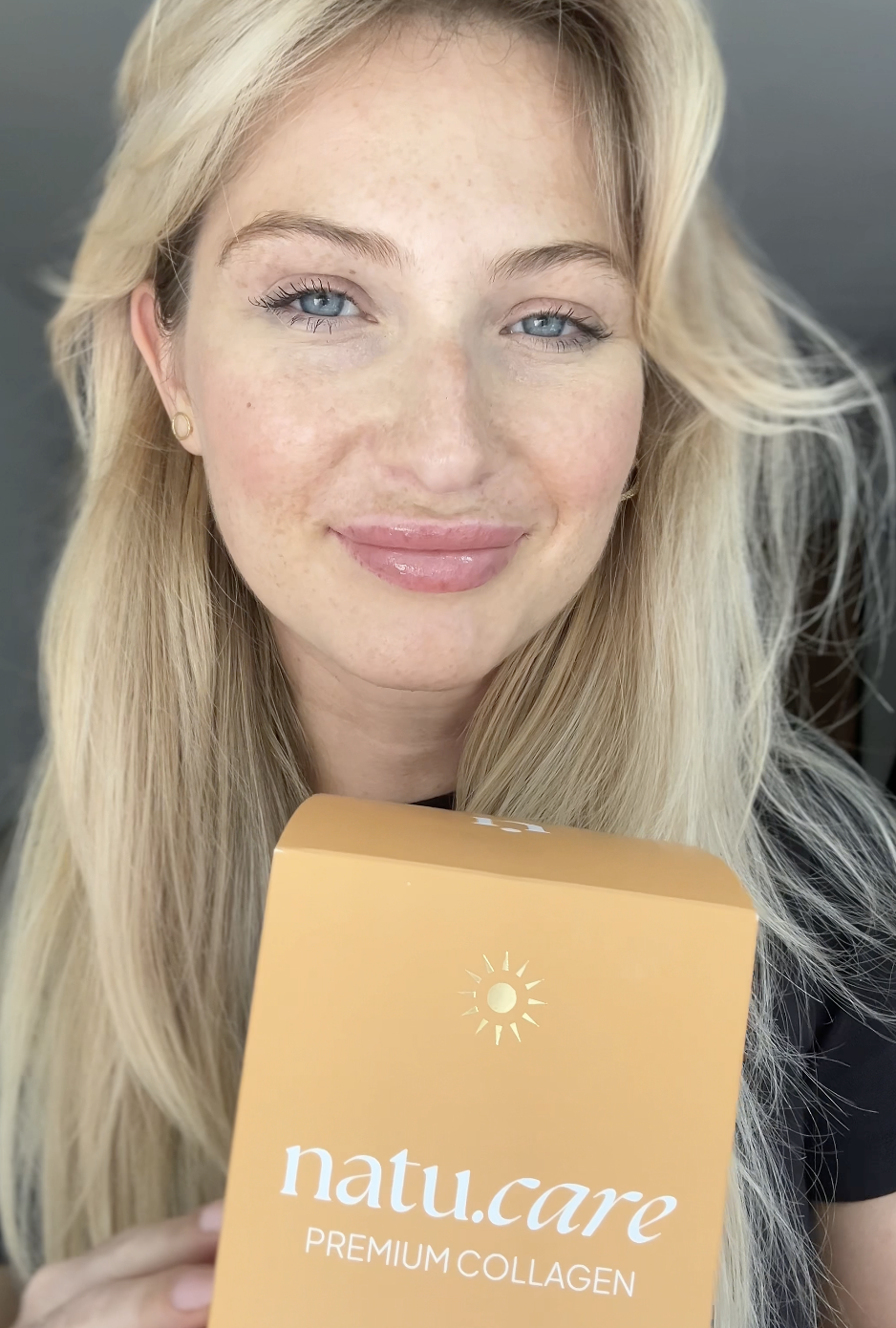
Wybrałam kolagen Natu.Care, ponieważ miał super opinie – a to było dla mnie bardzo ważne! Odkąd go stosuję, moja skóra znacznie się poprawiła i jest nawilżona, a na głowie pojawiły się nowe "baby hair".@Kasia S.
See also:
.
- The best collagen on the market .
- Best facial collagen
- Best collagen for wrinkles
- Best collagen for skin
- Best collagen for hair
- Best collagen for nails
- Best collagen for cellulite
- Best collagen for acne
- Best collagen for stretch marks
- Best collagen for scars
- Best collagen for joints
- Best collagen for tendons
- Best collagen for bones
- Best collagen for drinking andcollagen for drinking (effects)
What is the most potent collagen?
.
The most powerful collagen for joints to drink is type II collagen of marine origin in hydrolysed form. Hydrolysis breaks down collagen into collagen peptides and increases bioavailability. You will absorb sea collagen up to 50% better than bovine collagen, and type II is the best collagen in articular cartilage.
Best collagen - ranking
.
Number of products analysed: 120. Number of finalists: 10.
.
Collagen composition was assessed by pharmacist Ilona Krzak and dietitian Julia Skrajda.
Products in the compilation are rated for:
.
- .
- Collagen content. The most effective formulations, according to research, contain 2.5-15 grams of collagen hydrolysate. A lower content will be unsatisfactory and a higher content unnecessary. .
- Purity of formulation. You will not find preservatives and other fillers in the best collagen supplements. Remember that what is listed on the label goes into your body later. .
- Additional active ingredients. Vitamins and minerals that support collagen synthesis. Particularly important is vitamin C, which accelerates the absorption and supports the body's production of collagen. .
- Testing. The quality of the formulation should be confirmed by tests carried out by independent, accredited laboratories.
- Form of administration. Collagen in cream will not produce real results on the skin - find out more about this below. You will only find tablet and drinkable formulations in this list.
- Origin of collagen. Few manufacturers source collagen from fish that live in the wild (rather than in farms) and are wild caught. These supplements are distinguished by their concern for the environment and animals. Here you will see the full criteria. .
Collagen ranking won:
.
- Natu.Care Collagen Premium 10 000 mg .
- Sundose° For Skin Anti-Aging° .
- Aura Herbals Colladrop Glow .
- Pharmovit Collagen Women .
- Sundose° Daily Glow° .
- ALLDEYNN Collarose Fish .
- DuoLife Collagen .
- Pharmovit Natural Wild Cod Collagen .
- COLLIBRE Vital Drink .
- YANGO Premium Collagen .
- OstroVit Marine Collagen .
- SOLVE LABS Collagen Peptides .
Natu.Care Collagen Premium 5000 mg, mango-maracuja

- Collagen content: 5000 mg marine collagen hydrolysate
- .
- Additional active ingredients: vitamin C, low molecular weight hyaluronic acid (and L-theanine and coenzyme Q10 in cocoa flavoured collagen or vitamin A and vitamin E in mango–passion fruit flavoured collagen)
- .
- Form: powder sachets
- .
- Dose: 1 sachet per day
- .
- Sufficient for: 30 days
- .
Product description
Fish collagen from the Natu.Care brand in a dose of 5000 mg. The formula contains a sufficient portion of the active substance to positively affect your joints, musculoskeletal system and immunity.
Take care of your tendons, joint cartilage, ligaments, muscles and even bones by supplying them with the building blocks to function properly. Move without bólu and provide the necessary support for any physical activity.
And as a „gratis” to regular supplementation, you will also receive firm skinóhand, healthy and shiny hair and strong nails.
Natu.Care Premium Collagen is available in two flavours – Cacao Bloom and Rise&Shine. Both formulas are based on the following active ingredients: marine collagen hydrolysate, wild roseóbud extract and hyaluronic acid.
Additionally, Cacao Bloom contains natural L-theanine, coenzyme Q10 and defatted Dutch cacao. Rise&Shine instead contains vitamin E and vitamin A.
These are the best collagens in the world.
These best fish collagens on the market also rós taste – Cacao Bloom is a treat for chocolate lovers. Rise&Shine will appeal to those whoóenjoy the refreshing taste of mangoófruit and passion fruit.
Pros and cons
Fish collagen from the Natu.Care brand in a dose of 5000 mg. The formula contains a sufficient portion of the active substance to positively affect your joints, musculoskeletal system and immunity.
Take care of your tendons, joint cartilage, ligaments, muscles and even bones by supplying them with the building blocks to function properly. Move without bólu and provide the necessary support for any physical activity.
And as a „gratis” to regular supplementation, you will also receive firm skinóhand, healthy and shiny hair and strong nails.
Natu.Care Premium Collagen is available in two flavours – Cacao Bloom and Rise&Shine. Both formulas are based on the following active ingredients: marine collagen hydrolysate, wild roseóbud extract and hyaluronic acid.
Additionally, Cacao Bloom contains natural L-theanine, coenzyme Q10 and defatted Dutch cacao. Rise&Shine instead contains vitamin E and vitamin A.
These are the best collagens in the world.
These best fish collagens on the market also rós taste – Cacao Bloom is a treat for chocolate lovers. Rise&Shine will appeal to those whoóenjoy the refreshing taste of mangoófruit and passion fruit.
Additional information
Fish collagen from the Natu.Care brand in a dose of 5000 mg. The formula contains a sufficient portion of the active substance to positively affect your joints, musculoskeletal system and immunity.
Take care of your tendons, joint cartilage, ligaments, muscles and even bones by supplying them with the building blocks to function properly. Move without bólu and provide the necessary support for any physical activity.
And as a „gratis” to regular supplementation, you will also receive firm skinóhand, healthy and shiny hair and strong nails.
Natu.Care Premium Collagen is available in two flavours – Cacao Bloom and Rise&Shine. Both formulas are based on the following active ingredients: marine collagen hydrolysate, wild roseóbud extract and hyaluronic acid.
Additionally, Cacao Bloom contains natural L-theanine, coenzyme Q10 and defatted Dutch cacao. Rise&Shine instead contains vitamin E and vitamin A.
These are the best collagens in the world.
These best fish collagens on the market also rós taste – Cacao Bloom is a treat for chocolate lovers. Rise&Shine will appeal to those whoóenjoy the refreshing taste of mangoófruit and passion fruit.
User review
Fish collagen from the Natu.Care brand in a dose of 5000 mg. The formula contains a sufficient portion of the active substance to positively affect your joints, musculoskeletal system and immunity.
Take care of your tendons, joint cartilage, ligaments, muscles and even bones by supplying them with the building blocks to function properly. Move without bólu and provide the necessary support for any physical activity.
And as a „gratis” to regular supplementation, you will also receive firm skinóhand, healthy and shiny hair and strong nails.
Natu.Care Premium Collagen is available in two flavours – Cacao Bloom and Rise&Shine. Both formulas are based on the following active ingredients: marine collagen hydrolysate, wild roseóbud extract and hyaluronic acid.
Additionally, Cacao Bloom contains natural L-theanine, coenzyme Q10 and defatted Dutch cacao. Rise&Shine instead contains vitamin E and vitamin A.
These are the best collagens in the world.
These best fish collagens on the market also rós taste – Cacao Bloom is a treat for chocolate lovers. Rise&Shine will appeal to those whoóenjoy the refreshing taste of mangoófruit and passion fruit.
Natu.Care Collagen Premium 10000 mg, cherry

- Collagen content: 10,000 mg of hydrolyzed bovine collagen
- Additional active ingredients: vitamin C, low molecular weight hyaluronic acid, glucosamine, chondroitin, extract of Indian frankincense resin (boswellia serrata)
- Form: powder sachets for drinking
- Serving: 1 sachet per day
- Lasts for: 30 days
Product description
One of the strongest collagens on the market, providing as much as 10,000 mg per daily serving. This product can effectively support the condition of joints, skin, hair, and nails.
With this supplement, you will support your skeletal and joint system as well as your beauty, helping you visually halt the aging process and feel rejuvenated!
Pros and cons
Pros:
- The daily portion of collagen is very large – as much as 10,000 mg.
- Proven collagen formula – COLLinstant, whose effectiveness has been confirmed in clinical studies.
- Effective dose of hyaluronic acid, which additionally moisturizes the skin and positively affects joint health.
- Vitamin C supports the body's natural collagen production.
- Glucosamine is a fundamental building block of compounds found in joint cartilage and a component of collagen that gives elasticity to connective tissue in tendons.
- Chondroitin is a natural component found in the human body, mainly in cartilage. This large molecule (mucopolysaccharide) has the ability to absorb water, which helps maintain the elasticity and resilience of cartilage.
- Frankincense resin extract supports blood circulation and joint mobility and reduces their stiffness. It may help alleviate inflammatory conditions.
- The composition has been tested by the independent and accredited J.S. Hamilton laboratory.
Cons:
- None.
Additional information
Users praise Natu.Care Collagen Premium for the easy dissolving of the powder.
ALLDEYNN Collarose Fish
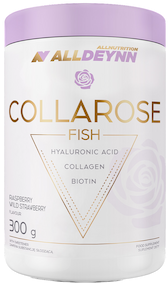
- Collagen content: 5000 mg hydrolysate fish collagen VERISOL F® .
- Additional active ingredients: vitamin C, hyaluronic acid, biotin
- Form: powder to dissolve in water .
- Dose: one scoop (6 g) of powder daily .
- Sufficient for: 50 days .
Product description
Atlantic cod collagen VERISOL F® contained in the formula are easily absorbed collagen peptides of fish origin. Regular supplementation can firm your skinóhand and slow down the ageing process. Your nails will become stronger and stop breaking. The addition of biotin will improve the condition of your hairów. The collagen portion is high enough to also have a good effect on your joints, muscles and bones.
Pros and cons
Atlantic cod collagen VERISOL F® contained in the formula are easily absorbed collagen peptides of fish origin. Regular supplementation can firm your skinóhand and slow down the ageing process. Your nails will become stronger and stop breaking. The addition of biotin will improve the condition of your hairów. The collagen portion is high enough to also have a good effect on your joints, muscles and bones.
Additional information
Atlantic cod collagen VERISOL F® contained in the formula are easily absorbed collagen peptides of fish origin. Regular supplementation can firm your skinóhand and slow down the ageing process. Your nails will become stronger and stop breaking. The addition of biotin will improve the condition of your hairów. The collagen portion is high enough to also have a good effect on your joints, muscles and bones.
Expert and user opinion
Atlantic cod collagen VERISOL F® contained in the formula are easily absorbed collagen peptides of fish origin. Regular supplementation can firm your skinóhand and slow down the ageing process. Your nails will become stronger and stop breaking. The addition of biotin will improve the condition of your hairów. The collagen portion is high enough to also have a good effect on your joints, muscles and bones.
DuoLife Collagen fish collagen 2500 mg
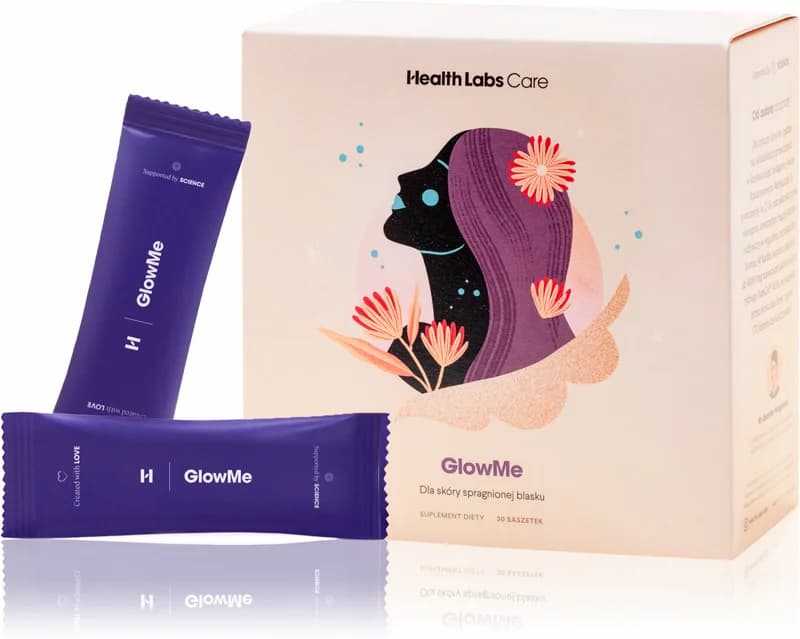
- Collagen content: 2500 mg collagen
- Additional active ingredients: vitamin C, silicon, glucosamine, hyaluronic acid, nettle and bamboo extracts
- Form: liquid to drink .
- Dose:25 ml .
- Sufficient for: 30 days .
Product description
100% natural collagen liquid without unnecessary ingredientsós. The composition of ingredientsós improves the appearance and condition of skinóry, hairów, nails. DuoLife is a good choiceór if you notice the first signs of skinóry ageing or want to stop this process. A tasty liquid, convenient to use.
Pros and cons
100% natural collagen liquid without unnecessary ingredientsós. The composition of ingredientsós improves the appearance and condition of skinóry, hairów, nails. DuoLife is a good choiceór if you notice the first signs of skinóry ageing or want to stop this process. A tasty liquid, convenient to use.
Additional information
100% natural collagen liquid without unnecessary ingredientsós. The composition of ingredientsós improves the appearance and condition of skinóry, hairów, nails. DuoLife is a good choiceór if you notice the first signs of skinóry ageing or want to stop this process. A tasty liquid, convenient to use.
User review
100% natural collagen liquid without unnecessary ingredientsós. The composition of ingredientsós improves the appearance and condition of skinóry, hairów, nails. DuoLife is a good choiceór if you notice the first signs of skinóry ageing or want to stop this process. A tasty liquid, convenient to use.
Pharmovit liquid collagen 10000 mg
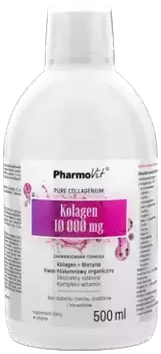
- Collagen content: 10000 mg hydrolysed bovine collagen types I and III .
- Additional active ingredients: hyaluronic acid, natural plant extracts, vitamin C, B vitamins, zinc, vitamin D
- Form: vials .
- Dose: 25 ml .
- Sufficient for: 20 days .
Product description
A solid daily dose of collagen for jointómuscle and bone health and beauty. The duo of collagen and vitamin C has a positive effect on each other, so that „the protein of youth” is better absorbed and more efficiently produced in the body.
Pros and cons
A solid daily dose of collagen for jointómuscle and bone health and beauty. The duo of collagen and vitamin C has a positive effect on each other, so that „the protein of youth” is better absorbed and more efficiently produced in the body.
Additional information
A solid daily dose of collagen for jointómuscle and bone health and beauty. The duo of collagen and vitamin C has a positive effect on each other, so that „the protein of youth” is better absorbed and more efficiently produced in the body.
KFD Premium Collagen+
Product description
High dose of collagen and a real bomb of vitamins C and D and organic sulphur. With this preparation the effects will come immediately. You will improve the firmness of your skin and reduce wrinkles. Your hair and nails will be strong and shiny.
A generous dose of collagen will improve the mobility of your jointsós, benefit your bone system and muscles. Do you do sports and need a product thatós able to keep up with your needs? This product will do the trick.
Pros and cons
High dose of collagen and a real bomb of vitamins C and D and organic sulphur. With this preparation the effects will come immediately. You will improve the firmness of your skin and reduce wrinkles. Your hair and nails will be strong and shiny.
A generous dose of collagen will improve the mobility of your jointsós, benefit your bone system and muscles. Do you do sports and need a product thatós able to keep up with your needs? This product will do the trick.
Additional information
High dose of collagen and a real bomb of vitamins C and D and organic sulphur. With this preparation the effects will come immediately. You will improve the firmness of your skin and reduce wrinkles. Your hair and nails will be strong and shiny.
A generous dose of collagen will improve the mobility of your jointsós, benefit your bone system and muscles. Do you do sports and need a product thatós able to keep up with your needs? This product will do the trick.
Expert opinion
High dose of collagen and a real bomb of vitamins C and D and organic sulphur. With this preparation the effects will come immediately. You will improve the firmness of your skin and reduce wrinkles. Your hair and nails will be strong and shiny.
A generous dose of collagen will improve the mobility of your jointsós, benefit your bone system and muscles. Do you do sports and need a product thatós able to keep up with your needs? This product will do the trick.
Product description
The dietary supplement from Remé contains beef collagen in a patented formula and vitamin C, whichóra aids its absorption. The formula comes in three flavours: neutral, orange-maracuja and strawberry-pomegranate. The formula can effectively support and improve the condition of the skinóry, hairóry and nails.
Pros and cons
The dietary supplement from Remé contains beef collagen in a patented formula and vitamin C, whichóra aids its absorption. The formula comes in three flavours: neutral, orange-maracuja and strawberry-pomegranate. The formula can effectively support and improve the condition of the skinóry, hairóry and nails.
Additional information
The dietary supplement from Remé contains beef collagen in a patented formula and vitamin C, whichóra aids its absorption. The formula comes in three flavours: neutral, orange-maracuja and strawberry-pomegranate. The formula can effectively support and improve the condition of the skinóry, hairóry and nails.
The dietary supplement from Remé contains beef collagen in a patented formula and vitamin C, whichóra aids its absorption. The formula comes in three flavours: neutral, orange-maracuja and strawberry-pomegranate. The formula can effectively support and improve the condition of the skinóry, hairóry and nails.
See also:
.
- What collagen to choose or more specifically: .
- What collagen to drink
- What kind of collagen powder
- What kind of collagen in sachets
- What kind of liquid collagen
- What collagen in tablets
- What kind of collagen in capsules
Other products to help boost your health and beauty
.
Collagen is a true friend of your beauty, but it's worth taking care of it with other supplements too.
Why take collagen?
.
None of us takes supplements for no reason. When you take a product, you expect results. Collagen should provide us with these after just 8-24 weeks of regular supplementation.
- Uelasticises, hydrates and firms the skin. .
- Reduces the appearance of wrinkles and fine lines. .
- Reduces dryness and dullness of hair.
- Reduces nail brittleness and strengthens nail plates. .
- Can relieve joint pain and prevent osteoporosis. .
- Promotes the healing process of wounds. .
- Benefits the digestive system. .
When to supplement collagen?
.
The body produces collagen on its own, but from the age of 20 this process is already insufficient. With each passing year, collagen deficiency worsens. Beyond 25 years of age, we already lose around 1.5% of collagen per year. Our body understands its needs very well and mostly lets us know about them.
What does collagen deficiency manifest itself as?
- Worse skin condition. When you lack this protein, your skin will become dry, saggy, and wrinkles may appear.
- .
- Collagen deficiency is a major concern.
- Joint pain. Collagen is responsible for the production of joint synovium, which reduces friction. When there is less of this synovium, our joints are exposed to more friction, resulting in pain. In the long term, this can lead to tendon rupture or disc prolapse.
.
- Reduced immunity. Collagen works with the immune system. The protein is involved in forming a barrier to toxins or bacteria. Its deficiency makes the barrier leaky, which translates into a higher risk of infection.
- Decreased immunity.
- Bone decalcification. The skeletal system is also prone to problems when collagen is deficient. It leads to bone decalcification and increased bone fragility. This can result in severe bone pain and even osteoporosis.
.

Sprawdź, za co pokochały go tysiące klientek Kolagen Premium 10000 mg, mango-marakuja
Natu.Care Kolagen Premium 10000 mg, mango-marakuja
Natu.Care Kolagen Premium dla zdrowia stawów, skóry, paznokci i włosów. Najlepsza przyswajalność. Optymalna dawka 5 000 lub 10 000 mg. Przebadany przez niezależne laboratorium.
Zobacz więcej
Wybrałam kolagen Natu.Care, ponieważ miał super opinie – a to było dla mnie bardzo ważne! Odkąd go stosuję, moja skóra znacznie się poprawiła i jest nawilżona, a na głowie pojawiły się nowe "baby hair".@Kasia S.
What are the most potent forms of collagen?
.
Liquid collagen preparations (in powder or ready-to-drink form) are some of the most beneficial and effective collagen supplements. In addition, collagen also comes in the form of:
- tablets, .
- capsules, .
- gels, .
- injections, .
Drinkable collagen tends to have the highest dose of collagen, is well absorbed and convenient (especially for people who don't like swallowing pills).
The strongest collagen... In a cream?
.
If you are using collagen in cream, you are not providing your skin with (almost) any benefits.
Apparently, a collagen cream makes sense. If collagen helps your skin, then it should help when you put it on your skin.
Unfortunately, the molecules of collagen protein are too large to reach the dermis. And that's where all the magic happens.
Collagen applied to the skin does not work as the manufacturers claim. The smoothing effect you feel is unfortunately temporary - a layer of collagen cream temporarily helps to retain water in the skin. Collagen is unable to reach the dermis and provide it with the proper support..
 .
.
Witold Tomaszewskidoctor of medical sciences
.Hydrolysed or freeze-dried collagen - which is the strongest?
.
Collagen in its pure form is very poorly absorbed by the body. Manufacturers therefore process collagen into forms that are better absorbed:
.
- Hydrolysed collagen. You will find it in the vast majority of collagen supplements. The process of hydrolysis involves breaking down collagen into smaller peptides, making the protein much better absorbed (more effective).
- Collagen.
- Liophilised collagen. A much less common type of collagen that is created by evaporating water - a freeze-drying process (as in 'dried' raspberries!). This makes the protein smaller in volume and holds more of it in a capsule, for example.
.
Magister of Pharmacy Ilona Krzak, when asked which collagen is better, replied briefly: it is difficult to say. The number of studies comparing these types is limited. Hydrolysed collagen appeared to be a potential favourite, as it can be absorbed better.
See also:
Is fish collagen stronger than bovine collagen?
.
The strongest type of collagen, in terms of origin, is fish collagen. It shows the highest bioavailability of the three types - it is absorbed into the body up to 1.5 times faster than beef collagen. Therefore, if you're looking for fast results, bet on marine collagen, which is sometimes also called marine collagen.
Fish collagen has smaller molecules than bovine collagen, so it is absorbed better and faster..
 .
.
Ilona Krzak Master of Pharmacy
.
What effects will marine and bovine collagen provide?"
.
Preliminary animal studies suggest that bovine collagen increases the body's levels of type I and III collagen, while marine collagen enhances type I and II. This means that bovine collagen will be particularly good for reducing wrinkles, as well as improving skin elasticity and hydration.
Marine collagen, on the other hand, can effectively support the overall condition of the dermis, hair, nails, as well as the condition of cartilage. What's more, fish collagen is less likely to lead to side effects than bovine collagen.
These can include the following.
These may include diarrhoea or upset stomach. There is also a risk of contracting animal-borne diseases. Therefore, choose tested supplements.
Note that fish collagen is not ideal either - it too can lead to stomach problems in people who have fish or seafood allergies.
The most important in the body is type I collagen (90% of all collagen in the body). You will get it with marine protein as well as beef protein. The main difference between these types of collagen is the speed of absorption - in favour of fish type I collagen.
Most potent fish collagen
.High content of fish-derived collagen peptides makes Natu.Care Collagen Premium 10 000 mg the most powerful fish collagen. The 10,000 mg dosage, extra body-supporting vitamins and perfectly matched taste indicate that it is a great choice for those interested in nail, skin and hair health.
See also:
Most powerful types of collagen - what do they work for?
.
There are 28 types of collagen, and each has its own function and is essential for the body to function properly. However, five types are key, the characteristics of which you will find below.
Most powerful collagen in the body - type I
.
The strongest collagen is type I collagen. It is found in our body in the highest concentration. It is present in skin, bones, teeth, tendons, ligaments and organs. It accounts for up to 90 per cent of all collagen in the body.
Per gram, type I collagen is stronger than steel..
Molecular Cell Biology, 6th Edition(Lodish et al., 2007)
What does type I collagen affect?
Type I collagen is mainly found beneath the surface of the dermis. It is responsible for the structure and influences its condition. It is also the strongest collagen for hair and nails.
Supplementation with type I collagen can prevent nail brittleness and improve hair condition.
The strongest collagen for joints - type II
.
Type II collagen is the strongest collagen for joints, cartilage tissue and bones. It is responsible for their structure. Its greatest benefit is the alleviation of joint pain. It counteracts osteoarthritis as well as rheumatoid arthritis. For joint health, it is worth taking 10 mg of type II collagen daily.
What disadvantages does type II collagen have?
.
Sometimes when supplementing with type II collagen, you may experience increased levels of oxalate in your urine. The result of this can be problems with kidney stones. In most cases, however, it is safe to take this protein.
Most powerful collagen for the circulatory system - type III
.
Type III collagen is the second most important type of youth protein. It makes up between 5 and 20 per cent of the collagen in the body. It is an essential structural component of blood vessels, the uterus and the intestines. Its deficiency leads to rupture of these organs. Type III collagen most often works together with type I.
.
Collagen type III - what does it work for?
.
Type III collagen supports cardiovascular health and also regulates the formation of type I collagen fibres. It speeds up the wound healing process. In extreme cases, a lack of it can result in brain abnormalities or developmental delays.
The strongest collagen for tissues - type V
.
Collagen type V is essential for the formation of fibrils. It contributes to the bone matrix, cornea, liver, lung and placenta. It is the most important collagen for tissue health. It cooperates with types I, II and III. It also plays a role in hair structure and eye health - it is found in the cornea.
The strongest collagen for bones - type X
.
Collagen type X, like type II, is found in cartilage. It is one of the building blocks of bone. Its deficiency leads to osteoarthritis, as well as cartilage problems. Type X collagen forms a network in our body. Thanks to it, it is possible to quickly localise the source of disorders.
Supplementation with type X collagen is indicated, for example, after bone damage.
Important
Most dietary supplements containing collagen have Type I (sometimes combined with III) in their formulation. Unfortunately, few manufacturers provide information on the youth protein used. Therefore, if you are looking for the type of collagen for a specific condition, advise your doctor or pharmacist.

Sprawdź, za co pokochały go tysiące klientek Kolagen Premium 10000 mg, mango-marakuja
Natu.Care Kolagen Premium 10000 mg, mango-marakuja
Natu.Care Kolagen Premium dla zdrowia stawów, skóry, paznokci i włosów. Najlepsza przyswajalność. Optymalna dawka 5 000 lub 10 000 mg. Przebadany przez niezależne laboratorium.
Zobacz więcej
Wybrałam kolagen Natu.Care, ponieważ miał super opinie – a to było dla mnie bardzo ważne! Odkąd go stosuję, moja skóra znacznie się poprawiła i jest nawilżona, a na głowie pojawiły się nowe "baby hair".@Kasia S.
See also:
.
- How to choose collagen .
- The best collagen on the market
- Collagen with vitamin C .
- Collagen with hyaluronic acid
- Collagen for hair, skin, nails
Which products contain the most collagen?
.
Taking supplements with the strongest collagen is not all you can do to alleviate collagen deficiency symptoms. It's also worth getting the right diet to give you an extra dose of the protein of youth.
Products that contain the most collagen are:
.
- .
- crows feet, .
- gelatin, .
- bone broth, .
- fish with skin, .
- cooked cartilage, .
- fish in jelly,
- fish with skin,
- cooked cartilage,
- meat preparations
- meat preparations (e.g., brawn),
- chicken,
- chicken,
- chicken.
- chicken, .
- eggs, .
See also:
.
Summary
.
- The most powerful collagen available on the market is Collagen Premium 10,000 mg from Natu.Care. .
- Collagen supports, among other things, the condition of the skin, hair, nails and joints. .
- Dry skin, damaged hair, brittle nails and joint pain are some of the symptoms of collagen deficiency. .
- Collagen comes in the form of tablets, capsules, gels, powder, liquid and injections (collagen creams do not work). .
- Hydrolysed collagen is better absorbed by the body than lyophilised collagen. .
- Fish collagen is absorbed by the body about 1.5 times faster than bovine collagen. .
- There are 28 types of collagen, and the most important of these, accounting for 90% of collagen in the body, is type I collagen. .
FAQ
.Which collagen is best absorbed?
.The best absorbed collagen is hydrolysed fish collagen. Research suggests that marine youth protein is absorbed around 1.5 times faster than beef protein. That is why the composition of Natu.Care Collagen Premium is based on collagen peptides from wild cod caught in Norwegian seas.
What company's collagen do we recommend?
.The strongest collagen on the market that we recommend is Natu.Care Collagen Premium 10 000 mg. Other companies worth considering are Sundose and Aura Herbals Colladrop Forte, marine collagen 10000 mg. Both Rise&Shine and Cacao Bloom are researched and effective formulations that, with regular supplementation, support skin, hair, nails and joints.
Does collagen clog veins?
.No, collagen does not clog veins. In addition, it has a positive effect on blood vessels - strengthening their elasticity and ensuring good blood flow. It can also prevent varicose veins and promote their treatment.
No.
What damages collagen in the body?
.Deficiency of collagen in the body can be caused by lack of healthy sleep, alcohol abuse, smoking, insufficient physical activity or overexposure to UV radiation (i.e. excess sunlight). Excess unhealthy sugars also destroy collagen in the body.
Does collagen harm the liver?
.No, collagen does not harm the liver. What's more, the protein of youth can even have a positive effect on it. One of the components of collagen is an amino acid called glycine. It helps protect the liver from toxins and promotes the repair of damage to this organ.
Are there side effects of taking collagen?
.Most often, taking collagen is not associated with side effects. It occurs naturally in the body and is therefore considered safe. However, it is sometimes possible to experience side effects - such as bloating, nausea, digestive problems, heartburn or a feeling of fullness.
Which fish contain the most collagen?
.The most collagen can provide us with is cod, salmon, panga, big-eyed snapper or long-finned catfish.
Is pork collagen inferior to fish collagen?
.Pork collagen may have similar efficacy to fish collagen, however, it is usually the marine variety that will be better. It is distinguished by its better absorption by the body.
Does collagen harm the heart?
.Collagen does not harm the heart and may even support its function. Proline, one of the amino acids that make up collagen, supports the process of repairing arteries and removing fatty deposits from them. It has also been shown that regular collagen supplementation can lower blood pressure.
Sources
.See all
.Asghar, A., & Henrickson, R. L. (1982). Chemical, biochemical, functional, and nutritional characteristics of collagen in food systems. Advances in Food Research, 28, 231-372. https://doi.org/10.1016/s0065-2628(08)60113-5
.Ashmarin, I. P. (2007). Glyprolines in regulatory tripeptides. Neurochemical Journal, 1(3), 173-175. https://doi.org/10.1134/S1819712407030014
Choi, F. D., Sung, C. T., Juhasz, M. L. W., & Mesinkovsk, N. A. (2019). Oral Collagen Supplementation: A Systematic Review of Dermatological Applications. Journal of Drugs in Dermatology: JDD, 18(1), 9-16.
.Collagen Type 3-An overview | ScienceDirect Topics. (n.d.). Retrieved February 23, 2023, from https://www.sciencedirect.com/topics/medicine-and-dentistry/collagen-type-3
Collagen Type 10-An overview | ScienceDirect Topics. (n.d.). Retrieved February 23, 2023, from https://www.sciencedirect.com/topics/medicine-and-dentistry/collagen-type-10
Eastoe, J. E. (1955). The amino acid composition of mammalian collagen and gelatin. Biochemical Journal, 61(4), 589-600.
Fd, C., Ct, S., Ml, J., & Na, M. (2019). Oral Collagen Supplementation: A Systematic Review of Dermatological Applications. Journal of Drugs in Dermatology : JDD, 18(1). https://pubmed.ncbi.nlm.nih.gov/30681787/
JCI - Collagenases in human synovial fluid. (n.d.). Retrieved March 9, 2023, from https://www.jci.org/articles/view/106177
Kuivaniemi, H., & Tromp, G. (2019). Type III collagen (COL3A1): Gene and protein structure, tissue distribution, and associated diseases. Gene, 707, 151-171. https://doi.org/10.1016/j.gene.2019.05.003
Layers of the Skin | SEER Training. (n.d.). Retrieved March 14, 2023, from https://training.seer.cancer.gov/melanoma/anatomy/layers.html
Mathew-Steiner, S. S., Roy, S., & Sen, C. K. (2021). Collagen in Wound Healing. Bioengineering, 8(5), 63. https://doi.org/10.3390/bioengineering8050063
Moskowitz, R. W. (2000). Role of collagen hydrolysate in bone and joint disease. Seminars in Arthritis and Rheumatism, 30(2), 87-99. https://doi.org/10.1053/sarh.2000.9622
Sen, R., & Hurley, J. A. (2022). Osteoarthritis. In StatPearls. StatPearls Publishing. http://www.ncbi.nlm.nih.gov/books/NBK482326/
.Shen, G. (2005). The role of type X collagen in facilitating and regulating endochondral ossification of articular cartilage. Orthodontics & Craniofacial Research, 8(1), 11-17. https://doi.org/10.1111/j.1601-6343.2004.00308.x
Shoulders, M. D., & Raines, R. T. (2009). Collagen Structure and Stability. Annual Review of Biochemistry, 78(1), 929-958. https://doi.org/10.1146/annurev.biochem.77.032207.120833
Song, H., Zhang, S., Zhang, L., & Li, B. (2017). Effect of Orally Administered Collagen Peptides from Bovine Bone on Skin Aging in Chronologically Aged Mice. Nutrients, 9(11), 1209. https://doi.org/10.3390/nu9111209
Type I Collagen-An overview | ScienceDirect Topics. (n.d.). Retrieved February 23, 2023, from https://www.sciencedirect.com/topics/biochemistry-genetics-and-molecular-biology/type-i-collagen
Type-V Collagen-An overview | ScienceDirect Topics. (n.d.). Retrieved February 23, 2023, from https://www.sciencedirect.com/topics/biochemistry-genetics-and-molecular-biology/type-v-collagen
Tzaphlidou, M. (2008). Bone Architecture: Collagen Structure and Calcium/Phosphorus Maps. Journal of Biological Physics, 34(1-2), 39-49. https://doi.org/10.1007/s10867-008-9115-y
Wang, H. (2021). A Review of the Effects of Collagen Treatment in Clinical Studies. Polymers, 13(22), 3868. https://doi.org/10.3390/polym13223868
Zhao, C., Xiao, Y., Ling, S., Pei, Y., & Ren, J. (2021). Structure of Collagen. Methods in Molecular Biology (Clifton, N.J.), 2347, 17-25. https://doi.org/10.1007/978-1-0716-1574-4_2
Lodish, H., Berk, A., Kaiser, C. A., Krieger, M., Scott, M. P., Bretscher, A., Ploegh, H., & Matsudaira, P. (2007). Molecular Cell Biology (6th edition). W. H. Freeman.
Jelonek, L. (2023). Collagen. Everything you need to know (B. Turczynski, ed.; 1st ed.). Natu.Care. https://books.google.com/books?vid=9788396887801
..
Editorials
Meet the team


Editor
Graduate of Journalism and Artes Liberales at the University of Warsaw. Since 2017, he has been working with the biggest portals in Poland and abroad as an editor. Previously worked for 3 years in one of the leading pharmaceutical companies - he knows the health and beauty industry inside out. In his free time, he most enjoys playing tennis or skiing.
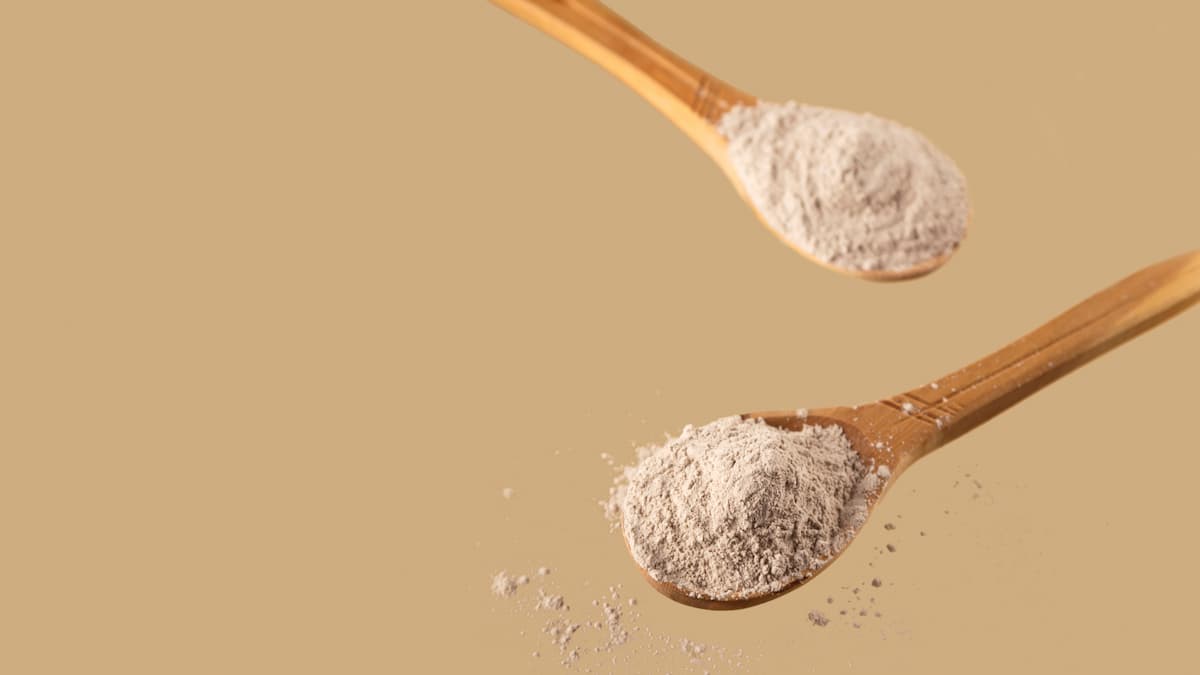
Everything you want to know about COLLinstant collagen.

Collibre collagen is an interesting supplement in shot form.
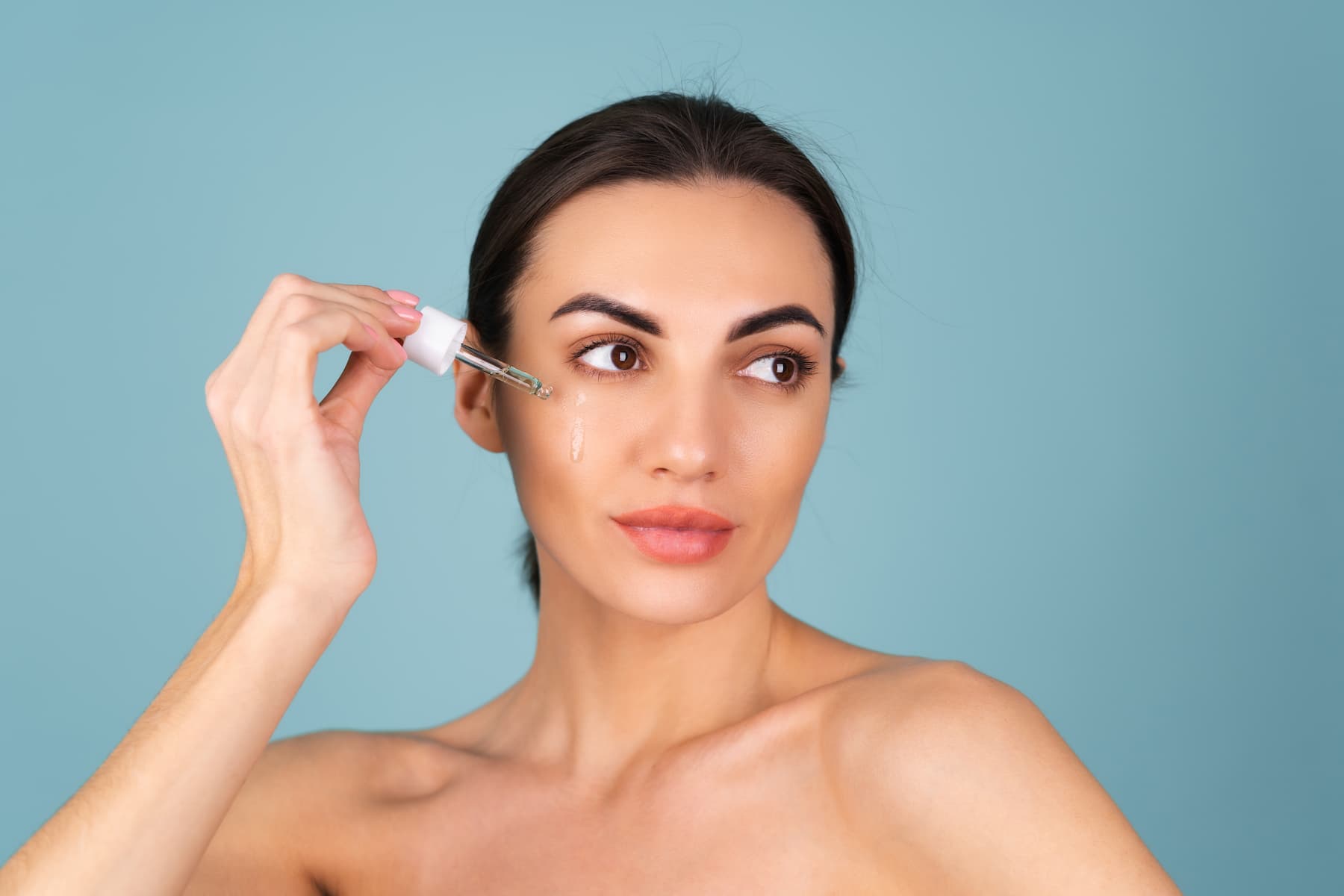
Solgar collagen with hyaluronic acid is a dietary supplement that supports skin and joint health.
